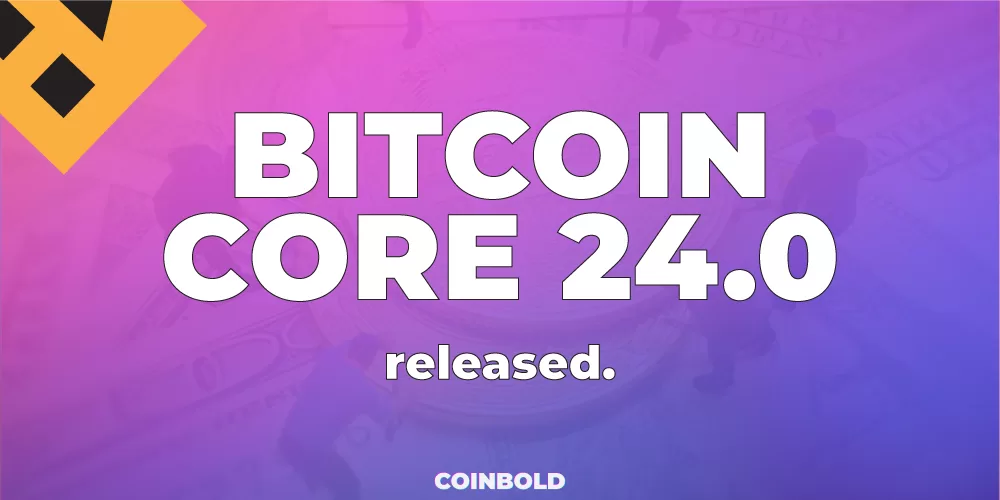The much-awaited Bitcoin Core major release, Bitcoin Core 24.0 upgrade finally goes live laying the groundwork for the Bitcoin memory pool, which acts as a holding area for unconfirmed transactions.
The Bitcoin Core 24.0 update brings about a change in the manner in which nodes download blocks when they synchronize with the network.
In contrast to earlier versions of Bitcoin Core, which only downloaded block headers to ensure that the blocks they downloaded had enough proof-of-work, Bitcoin Core 24.0 nodes will initially not keep these block headers in order to prevent a particular kind of resource exhaustion attack. This is in contrast to earlier versions of Bitcoin Core, which only downloaded block headers.
In Bitcoin Core 24.0, users now have the ability to fully implement replace-by-fee (RBF) logic. This feature was previously unavailable. The RBF standard was made available on the Bitcoin Network with the release of the BIP 125 upgrade in the year 2016.
The Bitcoin community is divided on whether or not the Full-RBF that is included in the most recent release should be implemented since it has the potential to make zero-confirmation transactions obsolete.
In addition, the majority of users have the opinion that the new option will encourage users to try double spending and will push zero confirmation programs to disable the feature for customers.
When a Bitcoin transaction is accepted by the blockchain before the miner-validated version, this process is referred to as having zero confirmations. Because of the modification, miners are now able to more quickly replace these transactions with ones that have higher fees, which has a negative impact on the transactions.
The purpose of the Replace by Fee mechanism as a whole is to increase the fees associated with doing transactions. In addition to being beneficial for miners, this will also serve as a standard for the market for blockchain fees.
Some people in the community are under the impression that the RBF is now being implemented by the core developers in an attempt to make RBF the default setting for all transactions.
This is the case because Bitcoin merchants and Bitcoin ATM operators that depend on zero-confirmation transactions to serve the demands of their customers in online commerce feel that the RBF will make their operations less trustworthy.
The idea of scaling Bitcoin via the use of transactions that need no confirmation may seem enticing, but in practice, this cannot be done without compromising the cryptocurrency’s security.
Compiled by Coinbold


